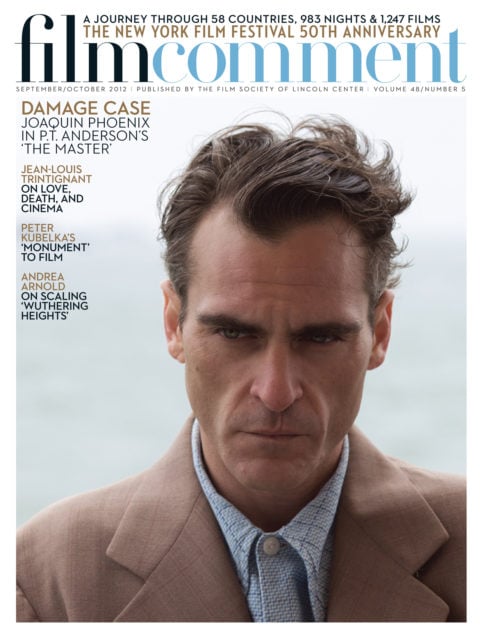
For the uninitiated, Stephen Chbosky’s novel The Perks of Being a Wallflower, published by MTV Books in 1999, wholeheartedly engages in the teenage impulse towards pretentiousness. Routinely compared to Catcher in the Rye, the book has as its central theme the struggle to understand the terrible things that inevitably happen to those we love and to ourselves. The narrative unfolds through a series of letters written by “Charlie,” addressed to you, the reader, and details his alternately painful and joyous high school freshman year. (He doesn’t know you personally, but he hopes that you will understand him, because he’s heard good things about you.)
Mercifully, writer-director Chbosky uses this framing device only loosely for his big-screen adaptation, preferring showing over telling—you never see Charlie (Logan Lerman) speaking directly to the camera or thoughtfully pecking at a computer keyboard. In fact, the film is conspicuously free of technological markers. While the letters in the book are dated 1991, the movie takes place sometime just prior to the end of the last century, before cellphones and social media monopolized teenage communication. For those who were born before the Nineties, this absence will make the story poignant and strange, as it underscores the incredible generational divide that has opened up in so short an amount of time. Those who weren’t—i.e., the intended audience for the film—will likely find this just as quaintly nostalgic as when Charlie gets a typewriter and LPs from his friends for Christmas.

How Charlie’s friendships evolve into misfired romances and then back into friendships, only purer than before, provides the backbone of both novel and film. However, the more shocking aspects of the original plot have been sanitized in several respects, perhaps making it more “believable” but reducing its emotional impact. Sampling the better parts of teenage life with his newfound clique (seniors who are into the Smiths and performing along with The Rocky Horror Picture Show at their local movie theater), Charlie still remains emotionally muted, and eventually suffers a nervous breakdown as they’re all about to depart for college. In the film, this stress is compounded by the trauma of losing his Aunt Helen, who was abused by her husband and dies in a car accident on Christmas Eve; in the book, it’s only after he suffers a nervous breakdown that Charlie recovers repressed memories of Aunt Helen molesting him. The movie also excises a rape and a trip to the abortion clinic, upholding Hollywood’s long tradition of shying away from depicting the latter.
Yet the adaptation doesn’t avoid the other elements that have kept Perks high on the American Library Association’s list of banned and challenged books for over a decade—homosexuality, drugs, comments confronting religious belief, and teenage sex. These “controversies” are relayed in a competent yet unremarkable fashion; the short, stubby sentences of Charlie’s prose and his flat, easily projected-upon demeanor still work on screen, but these aren’t complemented formally. Despite having a background in filmmaking, Chbosky seems more skilled as a novelist than a visual storyteller. However, the nucleus of Charlie’s social group—Sam (Emma Watson) and Patrick (Ezra Miller), half-siblings who experience romantic feelings of varying degrees for Charlie at different points—are as vibrant and appealing as they were on the page, both in terms of the two actors’ performances and how they function in the narrative. Like real teenagers, Watson and Miller convincingly move from glowing objects of desire to comic relief to deeply troubled human beings. For better and worse, Perks will make you feel like a teenager again.








